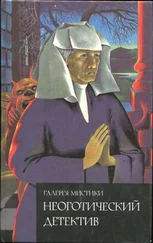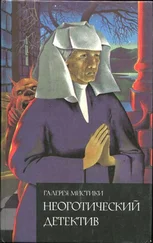“He may be busy.”
Gill scowled at her across the table. “Busy doing what, may I ask?”
“How should I know?”
“Then stop making up nonsensical excuses for him. Nobody’s too busy to pick up a phone. He’s damned inconsiderate. And what Amy ever saw in him I’ll never know.”
“He’s very good-looking. And very nice.”
“Good-looking. Nice. Great Scott, is that what women marry men for?”
“You’re hungry, dear. I’ll ring for breakfast.”
Helene pressed the buzzer under the table, feeling a mild surge of power. She had been born and raised in an Oakland slum, and never, in all her twenty years of marriage, had she become accustomed to the miracle of ringing for anything she wanted. Breakfast, martinis, chocolate creams, tea, magazines, cigarettes — you pressed a button, and bingo, whatever you wanted, there it was. Sometimes Helene just sat and thought of things to want so she would have the pleasure of pulling the tasseled bell cord or pressing the buzzer underneath the table.
Occasionally she visited Oakland but more frequently her parents came down the Peninsula to see her, Mrs. Maloney wearing her teeth and Sunday clothes, Mr. Maloney sober as a judge and dry as a herring. After the initial greetings of genuine pleasure, both parents stiffened into silence, too stunned by the luxurious surroundings to do much of anything except sit and stare. Back home they were affectionately voluble about their daughter Helene, who had gone to Mills College on a scholarship and lived in a fine house in Atherton with her wealthy husband and three beautiful children.
Face to face with her, they became mute and embarrassed, and their visits were a nightmare, especially to Gill, who tried harder than Helene did to make the Maloneys feel at home. His tactics were peculiar: he sought to minimize his wealth by calling attention to some of his economies, by talking forcefully of having his thirteen- year-old son take a paper route and his seventeen-year-old daughter work her way through college. The result of this stratagem was more confusion on the part of the Maloneys and complete frustration for Gill, who meant, as usual, only to do the right thing. No one had ever been able to figure out why such good intentions as Gill’s often had such disturbing consequences.
“Amy’s association with the Wyatt woman,” Gill said, “has meant nothing but trouble. She was obviously unbalanced. Anyone but Amy would have seen that and avoided her.”
Helene mentally crossed herself. “Now Gill. De mortuis ... Besides, they were friends. You don’t go back on a friend because she’s having, well, a few emotional problems. Wilma could be a very charming and entertaining person when she wanted to. That’s the way I prefer to remember her.”
“You have a very simple and convenient memory.”
“And I intend to keep it that way. Eat your breakfast.”
“I’m not hungry,” Gill said irritably. “Personally, I’m inclined to blame Rupert for this whole business. He should have vetoed the trip as soon as the subject was broached. Two women wandering alone around a foreign, uncivilized country — why, it’s preposterous.”
It sounded rather pleasant to Helene whose traveling was confined to shopping trips to the city and summers at Tahoe. She munched on a piece of crisp bacon, listening to Gill the way one listens to waves breaking on a beach, knowing the noise will always be the same, only varying in volume now and then with the tides and the weather.
So often the noise was about Amy, and Helene listened out of habit, without interest. In her opinion, Amy was a dull little creature, invested with wit by her brother and beauty by her husband, and having, in fact, neither. Helene, too, had often wondered about the relationship between Amy and Wilma, but she wondered from quite a different point of view from Gill’s: why should such an intense and energetic person as Wilma have wasted so much time on a mouse like Amy?
Gill turned up his volume. “I still think the American Embassy should have called me about this unfortunate affair.”
“Why?”
“Amy’s my kid sister.”
“She is also a grown woman with a husband. If she needs looking after, let Rupert do it.”
“Rupert is incapable of handling certain situations.”
“What’s to handle?” Helene said blandly.
“There are probably decisions to be made, actions to be taken. Rupert’s too soft. Now if I were down there I’d be firm with those foreigners.”
“If you were down there, dear, you’d be the foreigner.”
“I suppose you think that’s terribly clever?”
“It’s just the truth.”
“You seem,” he said with a dry little smile, “to be hitting on a great many truths these days.”
“Oh, I am. Some large, some small.”
“Tell me a few of them.”
“Another time. You’d better hurry if you’re going to take El Camino instead of Bayshore.” She smiled at her husband across the table. In spite of his manner of talking she knew him for a gentle man, more like Amy than he would ever realize. “You’ll drive carefully, won’t you, Gilly?”
“I wish you wouldn’t call me that. It sounds absurd.”
“You don’t object when Amy calls you...”
“It was my nickname when we were children. She uses it unconsciously. And I do object. Remind me to speak to her about it when she comes home.”
Helene’s expression didn’t change, but she felt a sudden sick feeling in her stomach and the coffee she was drinking seemed to have turned sour. I don’t want her to come home. She is two thousand miles away. I like it this way.
David, the thirteen-year-old, bounced into the room, wearing the uniform of the military day school he attended. “Morning, all.”
“What on earth,” Helene asked, “is the matter with your face?”
“Poison oak,” he said cheerfully. “Roger and Bill got it, too, when we were out on maneuvers. Boy, the sergeant was mad. He said the Russians could have landed while the whole bloody bunch of us were chasing around after poison oak.”
“I’ll call for you after school and take you to the doctor.”
“I don’t want to go to any bloody doctor.”
“Stop saying that word. It’s not very nice.”
“The sergeant uses it all the time. He’s an Englishman. They always say bloody. Oh, I forgot to tell you, Uncle Rupert’s home. He phoned last night when you were out.”
“You might,” his father said, “have told me before.”
“How could I, when you were out?”
“Is Amy all right?”
“I don’t know. He didn’t say anything about her.”
“Well, what did he say?”
“Just that he was going to be home all day today and would like to see you about something important.”
“I’ll call right...”
“He said not to call. It’s a very private matter. He wants to talk to you in person.”
Gill was already on his feet.
The two men shook hands and Gill said immediately, “Amy’s all right?”
“Yes.”
“Where is she? Still in bed?”
“She’s — we can’t talk out here. You’d better come in.”
The house was dark and quiet and musty, as if the people who lived there had been away for a long time. No sun filtered through the drawn blinds, no sound crept past the closed windows. Only in the den, at the end of the long, narrow hall, had the drapes been pulled open, and the morning sun hung dusty in the air. On the tiled coffee table was a half-empty highball glass smudged with lipstick, and beside it, an unstamped envelope with the name “Gilly” written across the front in Amy’s boarding-school script.
Gill stared at it. The letter was wrong; the silent man at the window, the too-quiet house, the half-empty glass, all seemed ominous. He cleared his throat. “The letter — it’s from Amy, of course.”
Читать дальше






![Маргарет Миллар - Rose's Last Summer [= The Lively Corpse]](/books/384369/margaret-millar-rose-s-last-summer-the-lively-c-thumb.webp)



![Маргарет Миллар - The Iron Gates [= Taste of Fears]](/books/433837/margaret-millar-the-iron-gates-taste-of-fears-thumb.webp)
